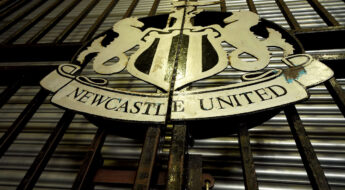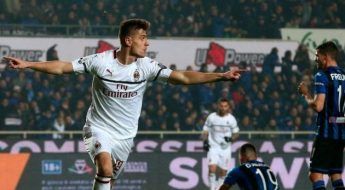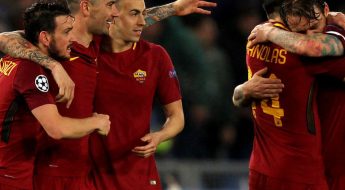8 thoughts from this week's Champions League action
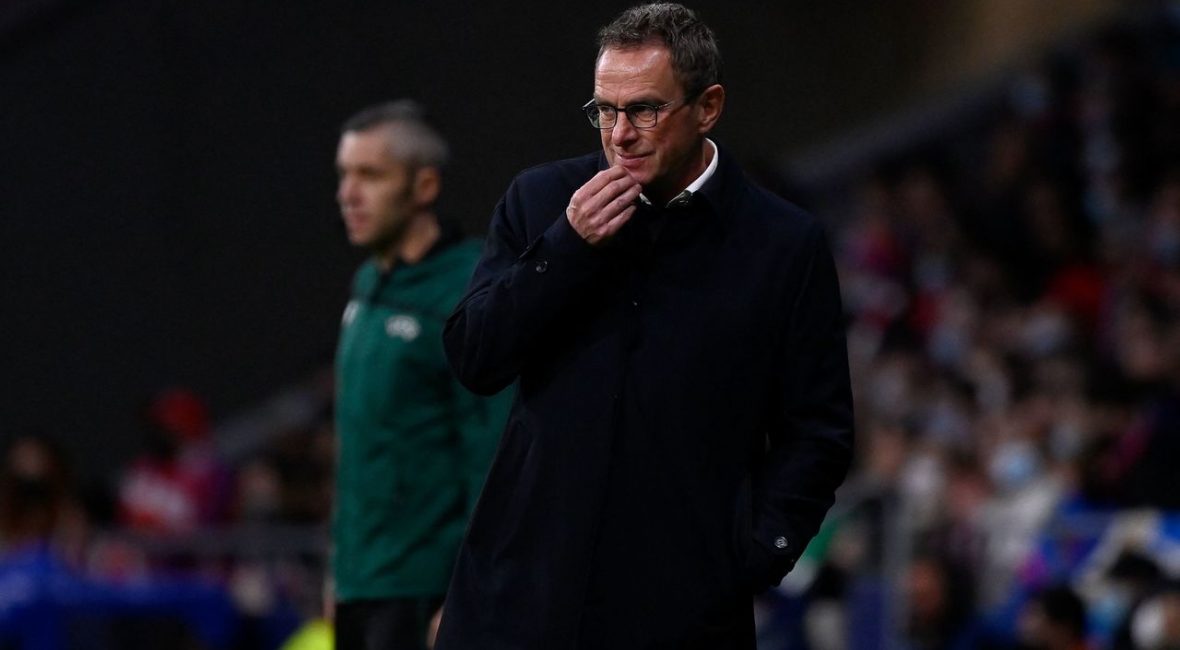
The Champions League last 16 rumbled on this week with the final batch of first-leg matches. Below, we dissect the biggest talking points from the games in Europe’s premier club competition.
Progression a poisoned chalice?
Sometimes, managers whose teams are underperforming domestically are wise to focus on their European dates; respite can be found from continental victories, driving cup-run optimism, or simply buying the boss more time in the dugout.
Atletico Madrid and Manchester United – languishing 15 and 17 points behind first place in La Liga and the Premier League, respectively – would usually fit this bill. The preseason forecasts of league title triumphs received their last rites long before the winter chill set in.
Diego Simeone and Ralf Rangnick’s team selections suggested they too were trying to lift the gloom at their clubs, but both managers may also be aware that advancing in the Champions League could be detrimental to their campaigns.
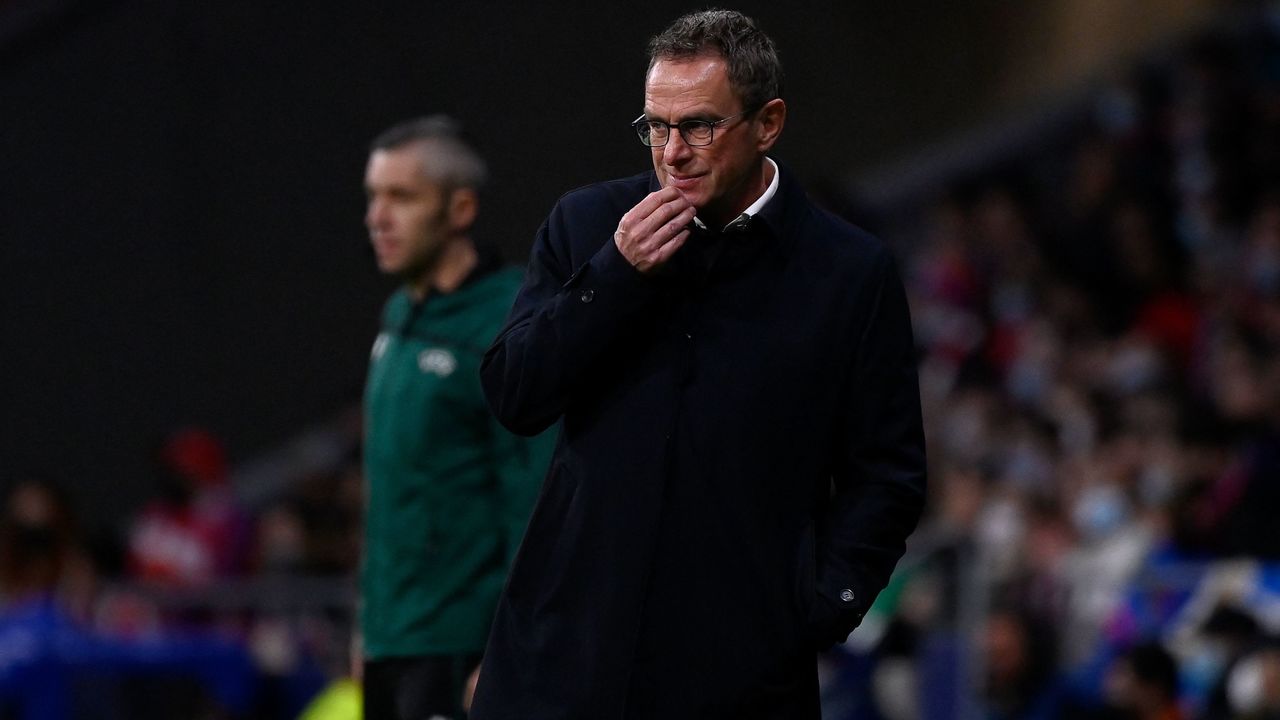
While Los Colchoneros are uncharacteristically porous at the back and the Red Devils stumble through a drawn-out identity crisis, can a team like Manchester City or Bayern Munich be welcomed for a quarterfinal double-header with anything other than a smile of startling insincerity?
Such a matchup is likelier to sound the death knell for a season rather than be a springboard for Champions League glory.
Perhaps the loser of Atleti and United’s meeting – it’s knotted at 1-1 following Wednesday’s opening leg – will be better placed to secure the more attainable aim of a top-four finish while there are no European distractions.
Kondogbia outclasses Pogba
Paul Pogba could only blame himself. His anger was evident as he neared his 66th-minute substitution, jumping and cursing himself when a ball went astray and taking his frustration out on Geoffrey Kondogbia when an Atleti player danced around another one of his challenges.
The Frenchman struggled so much that Nemanja Matic – the timeworn defensive midfielder who hadn’t played in over a month – was deemed a reasonable replacement with United down 1-0. Pogba lost possession more times than any of his colleagues. Across both teams, only Marcus Rashford was dribbled past more.
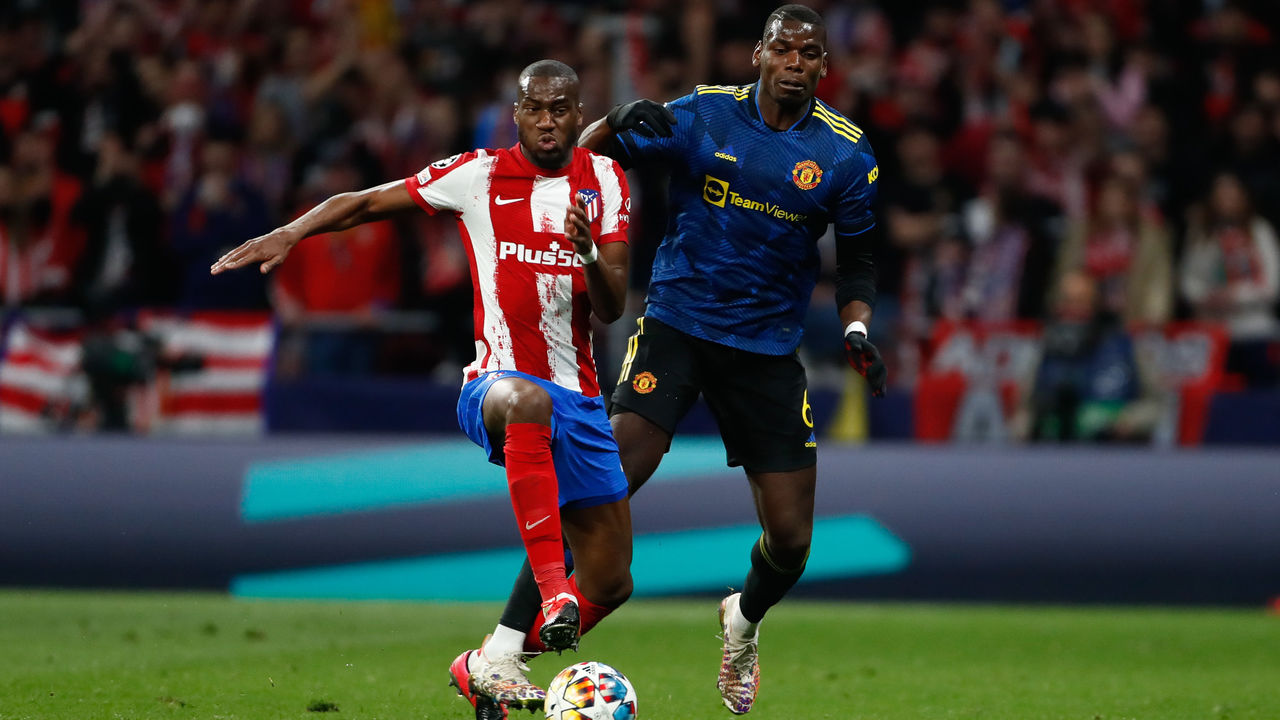
Kondogbia showed Pogba how it was done. He confidently skipped past challenges and rapidly pressed opponents who dared to encroach on his territory. Fred also found it hard to cope with Kondogbia and was saved when the referee peculiarly declared the latter illegally pinched the ball from the Brazilian before making his way toward goal in the 25th minute.
But, for the most part, Kondogbia appeared determined to prey on Pogba’s loose touches, indecision, and indiscipline. He racked up four tackles, three interceptions, and wasn’t dribbled past once. And while he contributed to Atleti’s attacks, he also drew three fouls – including one from Pogba that almost resulted in a 2-0 lead for the home side. Renan Lodi received a short free-kick from the set-piece, and his delivery was met by Sime Vrsaljko, whose header hit Victor Lindelof’s face before it cannoned off the crossbar.
Atletico’s superiority unrewarded
Atletico Madrid did most things right. Their aggressive approach got under United’s skin, the midfield battle was one-sided, and Cristiano Ronaldo – scorer of 25 goals over 35 matches against Atleti before the midweek clash – created no chances and didn’t get a single shot on target.
So a 1-1 draw will feel like a defeat, especially after Atletico rattled United’s woodwork near the end of both halves.
The equalizer itself was avoidable. The hosts’ organization and pressing were excellent for 79 minutes until, via a series of headers and quick passes, United broke through the middle with Bruno Fernandes. The danger wasn’t critical, but Reinildo Mandava tried to intercept Fernandes’ pass rather than shepherd the ball’s target, substitute Anthony Elanga, away from the box. Elanga took advantage of Reinildo’s missed challenge and confidently struck into the far corner of Jan Oblak’s goal.
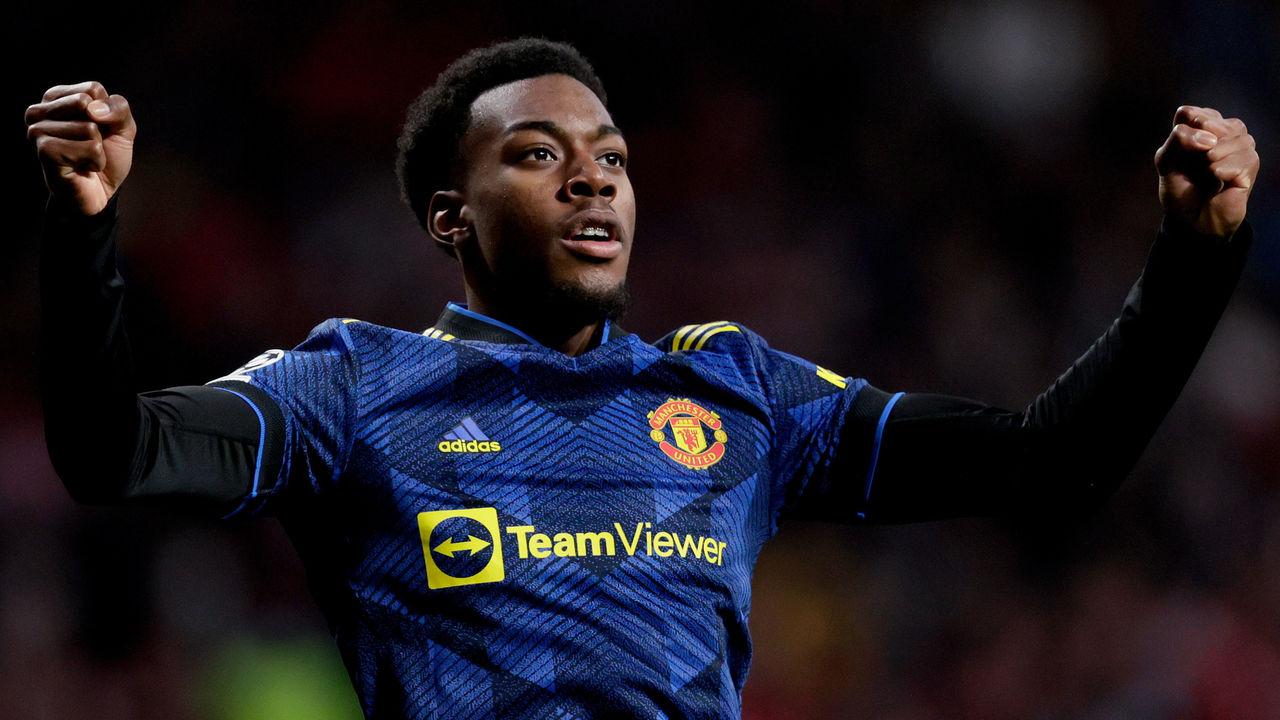
“I think that was my first touch as well,” Elanga, 19, told BT Sport after the match. “I’ve dreamt of moments like this, scoring in the Champions League. Obviously, on a big occasion like this, against a top European team like Atletico Madrid, it’s a dream come true.”
For the neutral, the teenager’s crucial strike was a heart-warming narrative to take away from the fixture. But for Atletico Madrid, it’s a huge blow to somehow finish such a strong display on level terms.
Mazraoui makes Ajax purr
While most understandably focused their attention on a clash of fallen titans in Spain, Wednesday’s best Champions League match took place in neighboring Portugal, where Benfica and Ajax played out a pulsating 2-2 draw at the Estadio da Luz at a frantic speed.
Ajax’s fluid, shape-shifting style was on full display, while Benfica’s tenacious attitude, spurred on by raucous support, was evident in the second half when they fought back to earn the draw. The Eredivisie leaders moved the ball in the intricate patterns that have come to be associated with the club, with Dusan Tadic, as usual, at the heart of the action. Meanwhile, Sebastien Haller made up for a clumsy own goal by keeping his Champions League scoring streak alive shortly after. The Ivory Coast international is the first player to score in his first seven Champions League matches, and he now has 29 goals in as many games this season across all competitions. Tadic and Haller continue to stand out during a potentially special season for Ajax.
But Erik ten Hag’s team wouldn’t be the sophisticated, flowing unit it is without the vital contributions of right-back Noussair Mazraoui, who outshone everyone to claim Man of the Match honors. The marauding Moroccan created Tadic’s opening goal by first winning possession and then setting up the Serbian with a pinpoint cross that couldn’t have been placed any better.
MOTM tonight: Noussair Mazraoui ?#UCL #benaja pic.twitter.com/Q8PvoStp6D
— AFC Ajax (@AFCAjax) February 23, 2022
The 24-year-old has the freedom to roam about the pitch. Mazraoui popped up in central areas, firing a shot from the edge of the box at one point, and then was on the receiving end of a ball over the top for another great chance in the second half. His role is akin, in some ways, to that of Trent Alexander-Arnold at Liverpool, who, like Mazraoui, is a “defender” in name only. Both players are integral attacking outlets for their respective clubs.
There is one key difference, though. Mazraoui will be available to everyone, for free, in less than five months when his contract expires.
We touted the Moroccan last month as someone Europe’s top clubs should be pressing hard to sign, and the rumors are in full swing. Case in point: Google search “Mazraoui” right now, and all the results are likely to be of the transfer rumor variety. AC Milan, Arsenal, and Roma are the latest to be linked.
If Ajax get past Benfica and progress deep into the competition, one of football’s most unique players is going to turn heads continent-wide, and then the bidding war will really begin.
Here are the main talking points from Tuesday’s matches …
Silva’s all-around game still staggering
In the 86th minute, Thiago Silva shifted to a different persona. The Chelsea defender quietly and almost invisibly mopped up spills like an attentive Edwardian servant for most of Lille’s visit, until Benjamin Andre rolled the ball between Andreas Christensen’s legs.
Silva swooped across and went to the ground, snapping the ball out of play and leaving left-back Gabriel Gudmundsson to pick himself up off the turf.
When the moment called for it, Silva’s calmness was ditched for a more demonstrative, John Terry-esque approach to danger. It was compelling evidence that, at the age of 37, he’s still one of the game’s best all-around defenders.
12 – Chelsea’s 37-year-old centre-back Thiago Silva won possession 12 times tonight against Lille, the most he’s ever done so in a Champions League match, with tonight his 94th appearance in the competition. Rock. pic.twitter.com/UhLL840KzP
— OptaJoe (@OptaJoe) February 22, 2022
Silva’s excellence was the foundation upon which Chelsea built their 2-0 win at Stamford Bridge.
Lille didn’t hold back for their trip to London. The dangerous pair of Renato Sanches and Jonathan Bamba worked on either side of Jonathan David, while defensive midfielder Amadou Onana tried to run through the heart of Chelsea’s lineup in his more advanced position. But Silva’s authority was constant in the center of the Blues’ back-three.
He beat David – the second-highest top scorer in Ligue 1 – to the ball only 26 seconds after kickoff, setting the tone in a match where the Canadian striker couldn’t muster a shot on target or a successful dribble.
As the first half wore on with the score only 1-0, Lille gained confidence. But when the ball flew over Marcos Alonso’s head to give Bamba a chance to run and cross, Silva was there to block the delivery. He was there time and time again, and he set the tone for the rest of his teammates.
Silva glanced at Alonso after that rare lapse by Chelsea’s defense. That’s all that was needed: the Spaniard didn’t do it again.
Vlahovic shines, but he needs more support
Dusan Vlahovic’s Champions League debut could hardly have gotten off to a better start.
The 22-year-old Serbian, upon whom much pressure has been heaped to overhaul Juventus’ insipid attack, needed less than a minute to score his first goal in Europe’s elite club competition Tuesday. The powerful striker showcased the explosiveness, strength, and finishing ability that persuaded Juve to spend an initial €81.6 million on him in January when he fired the Bianconeri into a first-minute lead against Villarreal at the Estadio de la Ceramica.
Through no fault of his own, though, it was a laborious outing for Vlahovic the rest of the way in the eventual 1-1 draw.
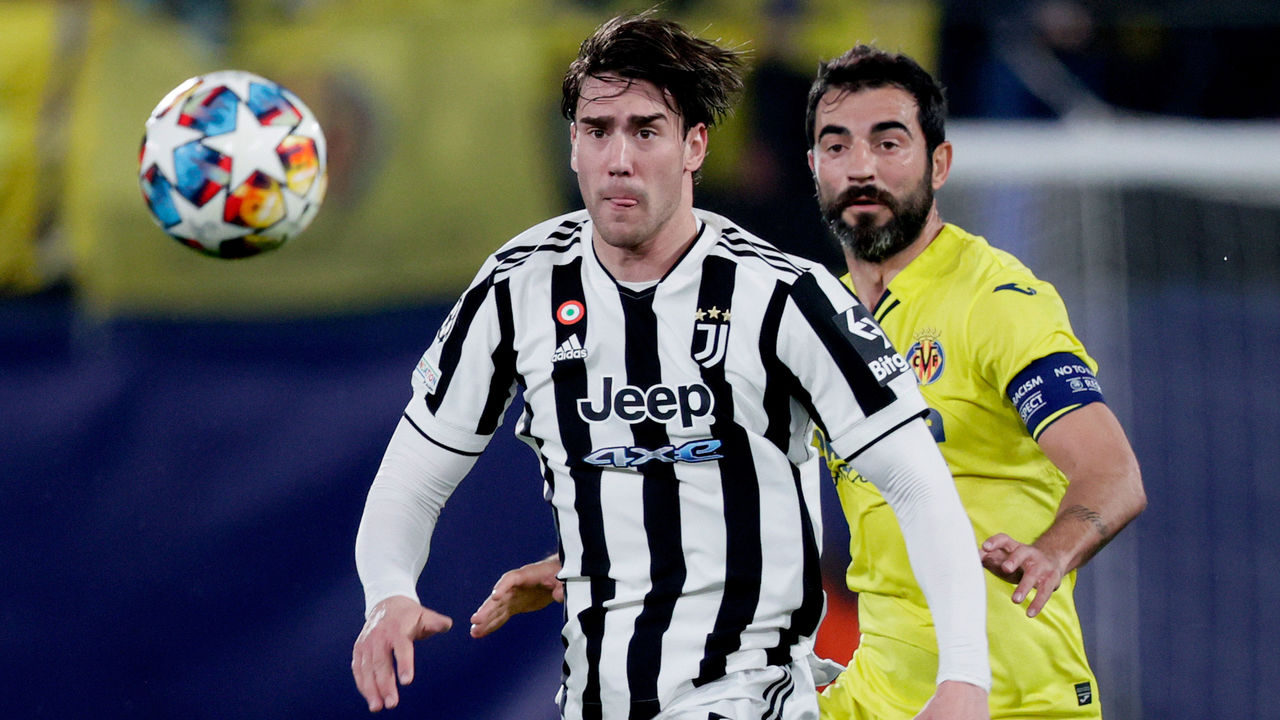
Max Allegri, to the continued chagrin of many Juventus supporters, opted for a 5-4-1 formation out of possession, setting up the Italian side in a low defensive block and leaving Vlahovic isolated up front. Against that backdrop, the former Fiorentina man did well to hold up play against two defenders, win free-kicks to break up the home team’s elongated spells of possession, and, of course, take the one real chance he was afforded. But Allegri needs to do a better job of putting Vlahovic in a position to succeed without constantly having to grind through matches with little help, lest he get frustrated and run down.
“He must be supported, and I must protect him until the end, as I protected players with less experience,” Allegri said prior to the last-16 encounter. “It’s not just a technical question, but also psychological. For the first time, he read an entire page on a newspaper asking why he hadn’t scored. It had never happened before.”
The return of Paulo Dybala from injury should, in theory, help Vlahovic flourish. But unless Allegri commits to at least a slightly more adventurous style of play where Vlahovic doesn’t spend so much time with his back to the goal on the halfway line, Juventus won’t extract the best out of their prized addition.
Missed opportunity for Villarreal
On level footing after the first leg, Villarreal should go into the return fixture in Turin with the confidence that they have a fantastic chance of reaching the Champions League quarterfinals for the first time since 2009; outside of the aforementioned Vlahovic, Juventus did little to suggest they can overpower Unai Emery’s organized team.
The 1-1 draw will fill Villarreal with optimism, but also a hint of regret. Tuesday’s game was eminently winnable.
This was a Juventus side, remember, missing Dybala, Giorgio Chiellini, and long-term absentee Federico Chiesa, among other less-celebrated names. Leonardo Bonucci, meanwhile, was only fit enough to start on the bench, forcing left-back Alex Sandro to begin the match in central defense.
Though they dictated play for the vast majority of the contest and controlled proceedings in midfield through Etienne Capoue and Dani Parejo – the duo that combined for the eventual equalizer – the Yellow Submarine only mustered nine total shot attempts from 59% possession. Plus, their goal was more the product of an atrocious defensive breakdown than a scintillating sequence of play.
pic.twitter.com/fRiNsMUokI
— JuveFC (@juvefcdotcom) February 22, 2022
Despite Emery utilizing an attack-minded lineup, there wasn’t enough invention in the club’s play against an opponent that was asking to be put under pressure. Samuel Chukwueze was twisting ponderous full-back Mattia De Sciglio into a pretzel whenever he got into one-on-one situations, but Villarreal didn’t do enough to exploit that obvious advantage and get the Nigerian winger isolated consistently enough.
If the Spanish outfit falters in the second leg March 16, this will go down as a big missed opportunity.
VAR, what is it good for?
Juve midfielder Adrien Rabiot, somehow, was only shown a yellow card for this horrible challenge on Chukwueze:
? VAR didn’t give this as a red card to Juventus’ Adrien Rabiot… #villarrealjuventus pic.twitter.com/QDe0ymqmvs
— talkSPORT (@talkSPORT) February 22, 2022
Still images can sometimes be misleading, but there’s no getting around this one: Rabiot should’ve been sent off. It’s problematic that referee Daniel Siebert missed such an obvious call on the field, but you can at least give him some leeway considering the speed at which things happen on the pitch and potential obstructions.
But there’s absolutely no excuse for the Video Assistant Referee – in this case, Bastian Dankert – not to indicate to Siebert that he should go have a look at the monitor and reconsider his original ruling.
The implementation of VAR in football continues to be a mess.


